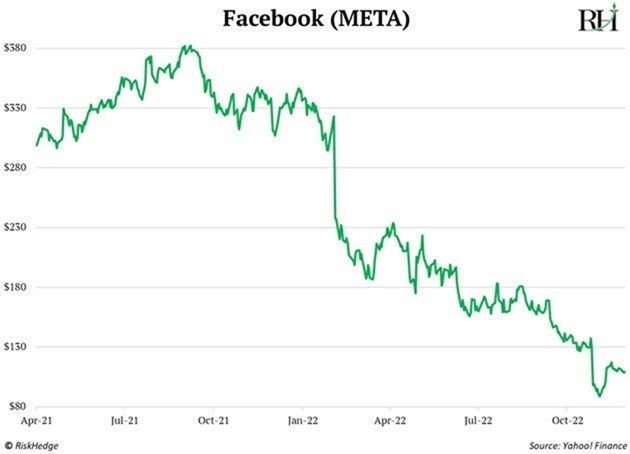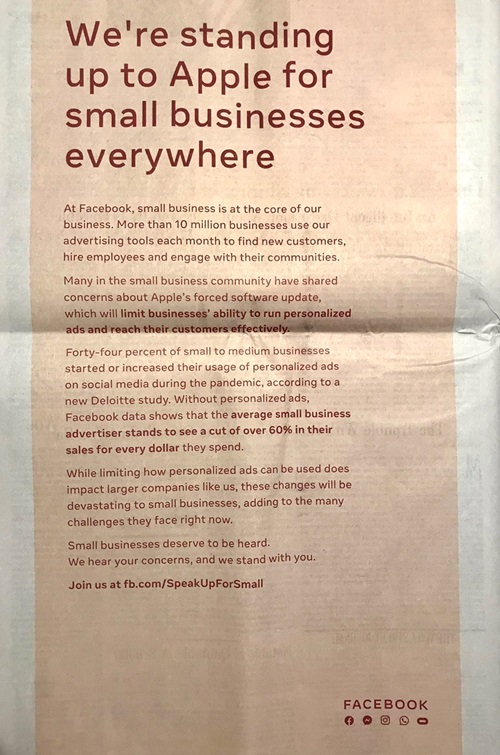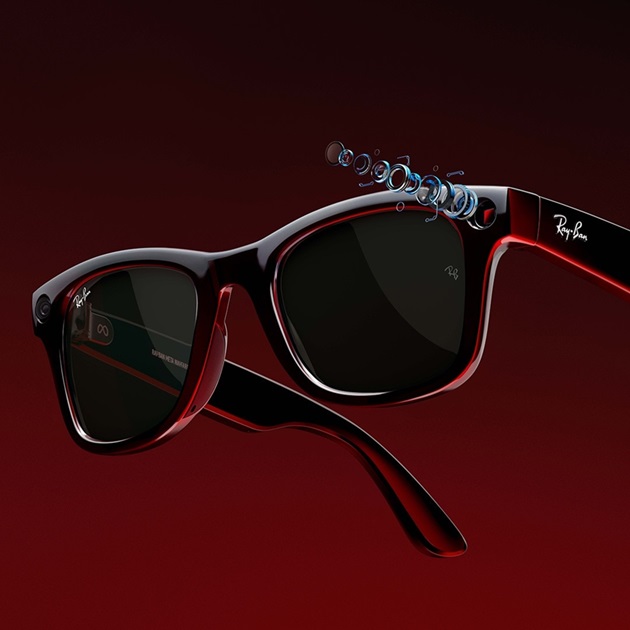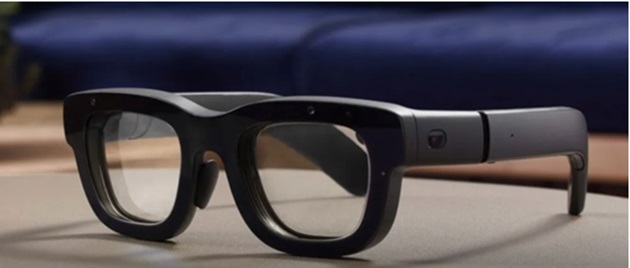If you could pass just one investing lesson to your kids, what would it be?
For me, it would be this: own the disruptors, avoid the disrupted.
BlackBerry (BB) investors in 2007 were feeling good. BlackBerries were the hottest mobile device, and the stock gained more than 90% in the previous year.
Then Apple released iPhone 1.
Over the next five years, BlackBerry’s market share plummeted from 22% to less than 1%. BB stock got eviscerated, crashing 90%.
iPhone, on the other hand, went on to become the best-selling product ever, raking in over $1.5 trillion in sales. It catapulted AAPL stock by 5,000% and turned Apple into the largest company in the world.
History is full of such examples. Netflix (NFLX) putting Blockbuster out of business, Google (GOOG) crushing Yahoo’s search engine, Tesla (TSLA) disrupting legacy car makers, and so on.
I am telling you this because another trillion-dollar disruption is happening before our eyes. And you don’t want to end up on the wrong side of it.
Meta (META) is about to disrupt Apple (AAPL) big time.
It’s payback for what Apple did to Facebook in 2021.
Facebook used to track nearly everything you did on your smartphone. It saw the websites you visit, your Christmas shopping list, your location and travel habits. Its tracking extended far beyond what you did in Facebook’s app.
Unethical? Certainly. But great for advertising.
Imagine you run a luxury pet spa. You could advertise solely to “pet owners aged 30–55, in high-income households within a 10-mile radius of your spa, who follow dog influencers, and own a poodle.”
Then in 2021, Apple put an end to this. It introduced new privacy rules which greatly restricted Facebook's ability to track users on Apple devices.
With one update, the effectiveness of Facebook’s ads tanked. This cost Facebook billions of dollars, and its stock cratered 75%:

Why did Apple get so tough on Facebook all of a sudden?
It might’ve been personal. Tim Cook (Apple CEO) and Mark Zuckerberg (Meta CEO) have been bickering for years.
Cook has openly criticized Facebook’s data collection practices: "When an online service is free, you're not the customer. You're the product."
In another interview, he said Apple believes “privacy is a human right” and that Apple would never “traffic in your personal life” like Facebook does.
Zuckerberg responded by calling Cook “ridiculous.” He also accused Apple of storing backups of everyone’s messages on iCloud.
The rivalry peaked in 2020 when Zuckerberg published a two-page ad criticizing Apple in The Wall Street Journal:

Four months after the ad was published, Apple released its privacy update, dealing Facebook a crushing blow.
Then Zuckerberg declared war.
Facebook eventually saved its advertising business with Advantage+, an AI-powered ad tool that doesn't need to track you. It just predicts, with scary accuracy, what you'll buy.
But the rivalry wasn’t over.
As Zuckerberg said at the time, “We increasingly see Apple as one of our biggest competitors.”
Shortly after the privacy rules debacle, Zuckerberg changed the company’s name to Meta and presented his vision for the metaverse.
A core part of this vision are AR glasses. Zuckerberg believes they are the "holy grail" of wearable devices. A bridge between virtual and real worlds. The iPhone killer.
Every 15–20 years, we get a new device that changes how we use computers. First, we sat across the room from giant mainframe computers. Then we put big boxes called PCs on our desks. Along came laptops, making it possible to work from our couches.
Then the iPhone put a supercomputer in our pockets.
Spot the trend? Computers shrink, get closer to us, and integrate better with our lives with every new device.
The next step is obvious: In the AI age they'll become part of what we wear.
Last year, Meta released its first AI-powered glasses in collaboration with Ray-Ban.
The specs are equipped with Meta AI, which can see and hear.
Above all, they’re non-intrusive and look cool.
They’re based on the iconic Wayfarer model—the camera, speakers, and other electronics are cleverly fitted inside the frame:

Source: Ray-Ban
You can hardly tell they’re any different than the standard model.
Meta Ray-Bans are already the #1 selling product in most Ray-Ban stores across the world.
When I first saw them, I knew I was looking at the iPhone killer.
Meta Ray-Bans are awesome. But they’re missing a key ingredient—a screen.
That’s what Zuckerberg plans to fix with the new Orion glasses.
They’re a mix of a smartphone and AR glasses, equipped with an AI brain, squeezed into stylish frames you wear on your face.

Zuckerberg demonstrated Orion glasses last month, and announced they’re set to hit stores in 2027.
Meta’s Orion glasses are fitted with a screen that only shows what you need, when you need it. At your desk? A virtual workspace appears. Walk into a cafe? Instantly see the menu and reviews. Need help fixing your sink? The AI walks you through it, step by step, with a graphic overlay.
Orion’s inward-facing cameras track your eyeballs, allowing them to work like a mouse. You simply look at the app you want to use, then “click” on it by pinching your thumb and index finger together. No tapping or swiping necessary.
Jensen Huang, CEO of Nvidia, was one of the lucky few to try Orion glasses himself. He called them “a big deal.” Other demonstrators were visibly impressed too.
A decade from now, more people will own Meta's AI glasses than an iPhone.
We’ll simply talk to the AI assistant on our face, and it’ll do everything our phones can today.
We won’t all chuck our iPhones in the trash. Just like we still use PCs and laptops today, smartphones will be around for years to come.
But smart glasses are a natural fit to become the dominant computing device in the AI age.
Billions of people already wear specs. Nobody has to "get used" to some weird new device. We're just adding smartphone capabilities, supercharged by AI, to something we already wear.
Zuckerberg is right. AR glasses are the "holy grail" of wearable devices.
Apple, on the other hand, is out of ideas.
You can barely tell the difference between the latest iPhone and the one from two years ago. The new phone, which launched last month, was supposed to be packed with new “sexy” AI features.
Have you heard anyone rave about them? I haven’t.
And did you hear the news about Apple’s AR glasses, the Vision Pro? Sales are so bad Apple is shutting down production altogether… after less than a year. Disaster.
Peak Apple is in the rearview mirror. Revenues have been flat for two years. Yet the stock is trading near its highest valuation in over a decade. It’s more expensive than Meta, which grew revenues by 25%!
Apple is a sitting duck, ripe for disruption—and Meta, with its innovative AI glasses, has it squarely in its crosshairs.
My big tech trade for 2025 and beyond: buy the disruptor—META; sell the disrupted—AAPL.
Related: The Weirdest Way To Get Rich in Crypto
For more ideas like this, consider joining my free investing letter, The Jolt. Every week, I write about the biggest disruptions and the stocks driving them. Go here to make sure you don’t miss the next issue.

